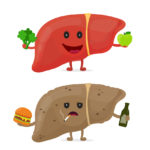By David Blyweiss, M.D., Advanced Natural Wellness
August 4, 2017
- Natural treatment for all that ails you
- Ancient spice for aches, pains, migraines and acid reflux
- Ginger fights cancer, diabetes, heart disease and more
Today many folks have come to rely so heavily on medical intervention for what ails them that they often forget to look toward natural remedies first.
For example, you might take heartburn medications for acid reflux or peptic ulcer. Maybe you take an NSAID pain reliever for minor aches and pains… or a prescription drug for migraine relief. And even though you know that all of these meds come with hefty side effects, you take them anyway.
Well, what if I told you there was a single spice that could help all of these issues? It’s been used in traditional Chinese medicine for thousands of years. And modern research is proving that these folks knew what they were doing.
The spice I’m talking about is ginger. And it turns out it works just as well as – if not better than – many of today’s commercial drugs for a variety of ailments.
Ginger for Aches, Pains, Migraines and Acid Reflux
If you have aching joints or muscles, it’s easy enough to reach for an NSAID pain reliever. But as I’ve mentioned many times in the past, these drugs are a gut irritating, kidney toxic and cardiovascular disaster in the making.
They can trigger heart attack, stroke – even cardiac arrest – within just weeks of use. The longer you take them, the greater the risk.
Thankfully there are natural compounds that can relieve your symptoms without the cardiovascular risk. One of them is ginger.
Open your arteries, improve blood flow for a new health miracle...
Did you know your circulatory system has over 60,000 miles of arteries, veins and other blood vessels, if stretched end to end?
But as you age, your blood vessels undergo changes, which may cause them to stiffen, thicken and get clogged.
GOOD NEWS! Doctors have now identified a “Miracle Molecule” inside your arteries that helps OPEN your arteries and IMPROVE blood flow.
It’s what Dr. Valentin Fuster calls it, "One of the most important discoveries in the history of cardiovascular medicine."To you, that means...
- Healthy blood pressure
- Sharper mind and memory
- Skyrocketing energy and muscular strength
- Increased pleasure and passion in the bedroom
- Improved circulation to every cell and organ in your body
Go here to discover a new natural way to significantly boost the levels of this miracle molecule in YOUR body NOW!
It doesn’t matter if your muscles are aching from a strenuous bout of exercise, or if your knees are gripped with arthritis. Daily ginger intake can relieve pain, stiffness and other symptoms by reducing the inflammation that causes it.
But these aren’t the only types of pain that ginger can shut down. It also works great for migraines.
One of the top medications used to treat these brain-numbing headaches is called Sumatriptan. It has a long list of side effects, including drowsiness, dizziness, serotonin depletion and fatal heart problems. To top it off, taking too much can actually make your headaches worse.
Well, guess what?
People who take a quarter-teaspoon of ginger powder at the onset of a migraine have a significant decrease in severity within two hours. This is just as fast and effective as sumatriptan – without the side effects.
And what about acid reflex?
Today way too many people are taking heartburn medications called “proton pump inhibitors” these days. And it’s killing them.
Long-term use of these drugs is associated with increased risk of chronic kidney disease, pneumonia, heart disease, bone fractures, magnesium deficiency and c. difficile infection. They also increase your risk of death over the next six years by about 25%.
I often recommend using deglycyrrhizinated licorice (DGL) or mastic gum to relieve acid reflux and digestive issues. But ginger is another great remedy for any type of gastrointestinal distress you’re experiencing – from heartburn to peptic ulcers.
As a matter of fact, when the anti-ulcer properties of ginger were tested against those of Prevacid, ginger was the winner. It performed six to eight times better than the drug.
The World's Quickest Solution for Ending Prostate and Urinary Misery
This has recently been revealed to be one of the only real breakthroughs in prostate health.
The seeds of a strange fruit (sometimes called "Chinese Apples") hold powerful phytonutrients that are a revolution in prostate health.
In fact, UCLA and Veterans Administration research have now proved this to be true.
Not only that, but it may be the worlds quickest solution for ending prostate misery.
Simply stated, these phytonutrients represent a huge step beyond beta sitosterol, saw palmetto, and other phytosterols alone.
Simply click HERE if you want to have fast prostate relief...restful, uninterrupted sleep...no more constant "urges to go"...enhanced virility...and optimal prostate support for life.
But it gets even better.
PPIs tend to work in a way that essentially removes the stomach’s acid barrier. Ginger had exactly the opposite effect. Its antioxidant properties may actually protect against ulcers. Plus, it protects your DNA from damage.
Ginger Fights Cancer, Diabetes, Heart Disease and More
The majority of research on ginger is on its ability to protect against gastrointestinal types of cancer. It’s shown to be effective in cutting the risk of gastric cancers, pancreatic cancer, liver cancer and colon cancer.
The power behind it appears to be the antioxidant and anti-inflammatory activities. For example, in patients with a high risk of colon cancer, just 2 grams of ginger daily for 28 days can reduce the spread of potential cancer cells… even kill them off.
It also helps suppress the spread of cells in other cancers, like those of the skin, ovaries, breast, prostate and brain.
Ginger may also be helpful for people who have already received a cancer diagnosis by offsetting the nausea associated with chemotherapy.
These are just a few of the most obvious benefits of ginger – ones that could help you avoid taking medications with dangerous side effects.
That doesn’t mean ginger doesn’t have more to offer. It also helps improve blood sugar levels and insulin sensitivity. It improves triglyceride levels and cholesterol ratios. Regular intake of ginger can even boost your memory.
It’s a long list. And all it takes to get these health benefits is to get more ginger in your diet. You can use fresh ginger root, ginger powder or even take a ginger extract, whichever works best for you.
SOURCES:
Altman RD, et al. Effects of a ginger extract on knee pain in patients with osteoarthritis. Arthritis Rheum. 2001 Nov;44(11):2531-8.
Bartels EM, et al. Efficacy and safety of ginger in osteoarthritis patients: a meta-analysis of randomized placebo-controlled trials. Osteoarthritis Cartilage. 2015 Jan;23(1):13-21.
Black CD, et al. Ginger (Zingiber officinale) reduces muscle pain caused by eccentric exercise. J Pain. 2010 Sep;11(9):894-903.
Maghbooli M, et al. Comparison between the efficacy of ginger and sumatriptan in the ablative treatment of the common migraine. Phytother Res. 2014 Mar;28(3):412-5.
Heidelbaugh JJ et al. Overutilization of proton-pump inhibitors: what the clinician needs to know. Therap Adv Gastroenterol. 2012 Jul; 5(4): 219–232.
Xie Y, et al. Risk of death among users of Proton Pump Inhibitors: a longitudinal observational cohort study of United States veterans. BMJ Open. 2017 Jul 4;7(6):e015735.
Siddaraju MN, et al. Inhibition of gastric H+, K+-ATPase and Helicobacter pylori growth by phenolic antioxidants of Zingiber officinale. Mol Nutr Food Res. 2007 Mar;51(3):324-32.
Khandouzi N, et al. The Effects of Ginger on Fasting Blood Sugar, Hemoglobin A1c, Apolipoprotein B, Apolipoprotein A-I and Malondialdehyde in Type 2 Diabetic Patients. Iran J Pharm Res. 2015 Winter; 14(1): 131–140.
Alizadeh-Navaei R, et al. Investigation of the effect of ginger on the lipid levels. A double blind controlled clinical trial. Saudi Med J. 2008 Sep;29(9):1280-4.
Shidfar F, et al. The effect of ginger (Zingiber officinale) on glycemic markers in patients with type 2 diabetes. J Complement Integr Med. 2015 Jun;12(2):165-70.
Saenghong N, et al. Zingiber officinale Improves Cognitive Function of the Middle-Aged Healthy Women. Evid Based Complement Alternat Med. 2012; 2012: 383062.
Prasad S, et al. Ginger and Its Constituents: Role in Prevention and Treatment of Gastrointestinal Cancer. Gastroenterol Res Pract. 2015; 2015: 142979.
Ryan JL, et al. Ginger (Zingiber officinale) reduces acute chemotherapy-induced nausea: A URCC CCOP study of 576 patients. Support Care Cancer. 2012 Jul; 20(7): 1479–1489.







